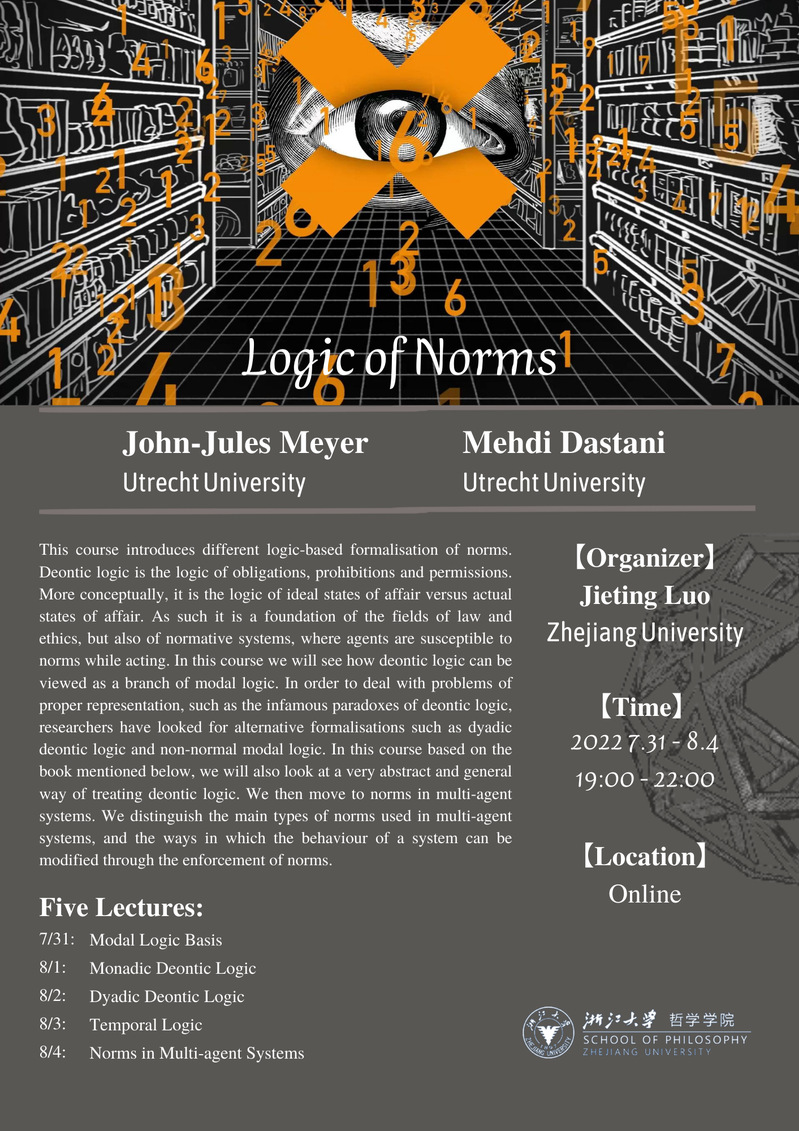The Subject of Psychoanalysis
is the Subject of Science
Instructor: Prof. Gertrudis Van de Vijver
(Ghent University)
Organizer: Bohang Chen (Zhejiang University)
Time: Jul 3-7, 15:00-17:25
Place: Online.
Syllabus: Download

In this Summer school, I invite you to follow in the footsteps of Descartes, Kant and Husserl, but also and above all in the footsteps of Freud and Lacan, the idea that it is the object that runs the show, and that the subject, even with all its cogitative and representational apparatus that we have known so well since Descartes, is on the contrary that which follows in the footsteps of the object - which takes in, resists, pulsates in its vagaries - and is born subject insofar as it allows itself to be divided by it ad infinitum. It is from this angle that I shall approach the question of scientific objectivity in general, and that of psychoanalysis in particular. If Lacan considers that the subject of psychoanalysis is the subject of science, this refers to the idea that without the particular position of the subject from Descartes onwards (and thus of modern science), psychoanalysis would never have seen the light of day.
Logic of Norms
Instructor: Prof. John-Jules Meyer (Utrecht University)
Prof. Mehdi Dastani (Utrecht University)
Organizer: Jieting Luo (Zhejiang University)
Time: Jul 31- Aug 4, 19:00-22:00
Place: Online.
Syllabus: Download

This course introduces different logic-based formalisation of norms. Deontic logic is the logic of obligations, prohibitions and permissions. More conceptually, it is the logic of ideal states of affair versus actual states of affair. As such it is a foundation of the fields of law and ethics, but also of normative systems, where agents are susceptible to norms while acting. In this course we will see how deontic logic can be viewed as a branch of modal logic. In order to deal with problems of proper representation, such as the infamous paradoxes of deontic logic, researchers have looked for alternative formalisations such as dyadic deontic logic and non-normal modal logic. In this course based on the book mentioned below, we will also look at a very abstract and general way of treating deontic logic. We then move to norms in multi-agent systems. We distinguish the main types of norms used in multi-agent systems, and the ways in which the behaviour of a system can be modified through the enforcement of norms.